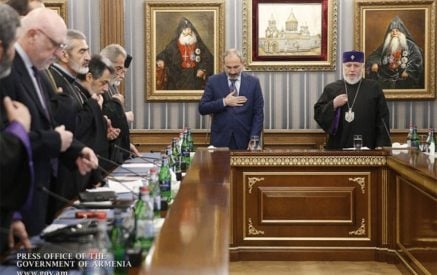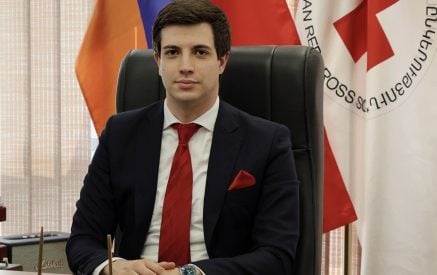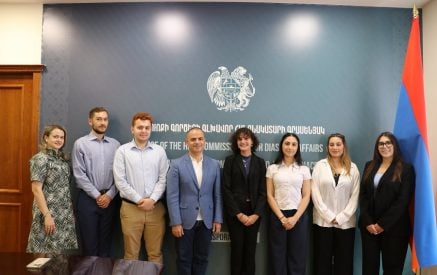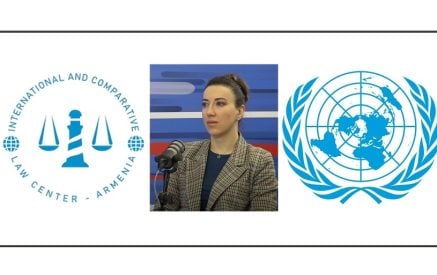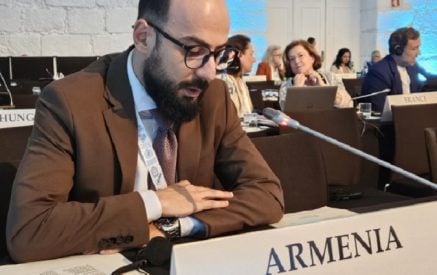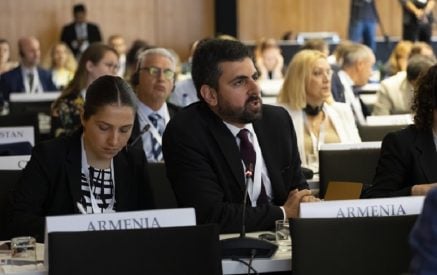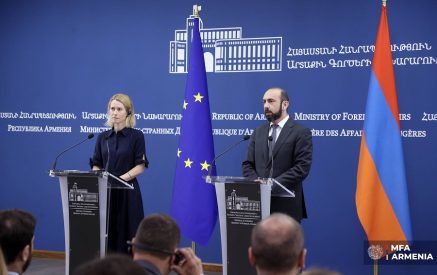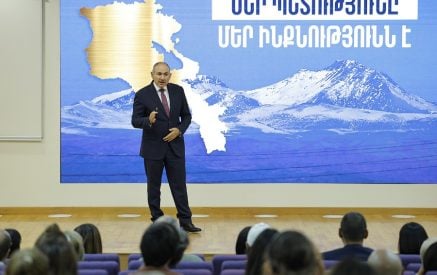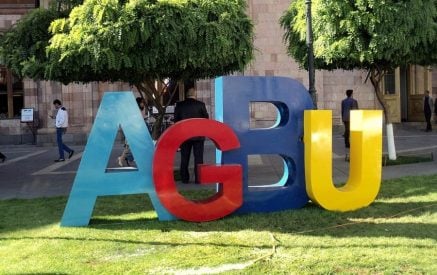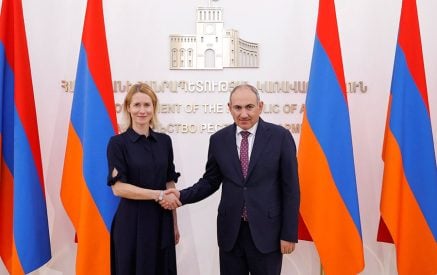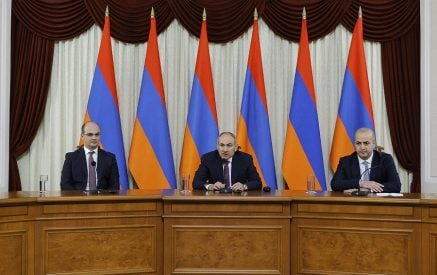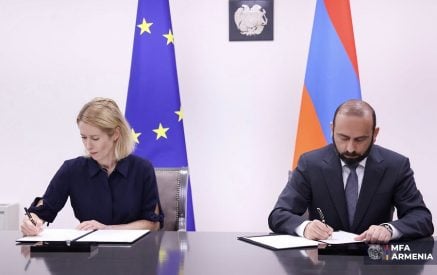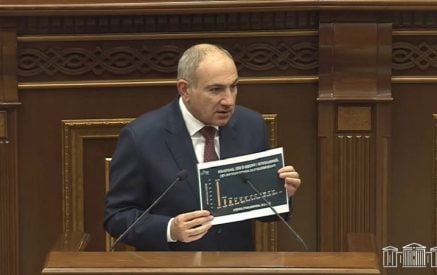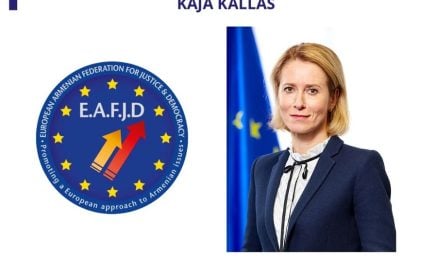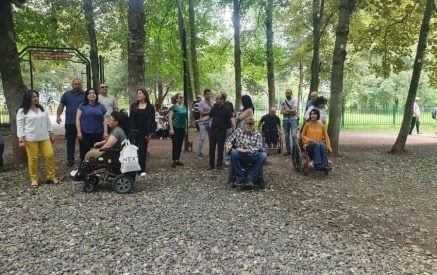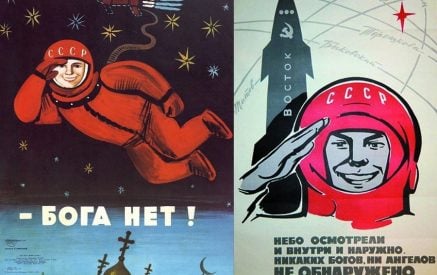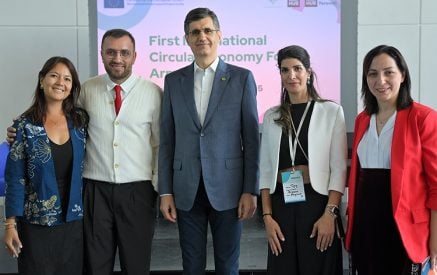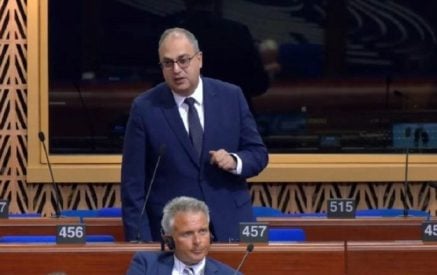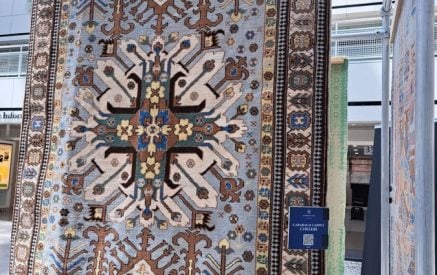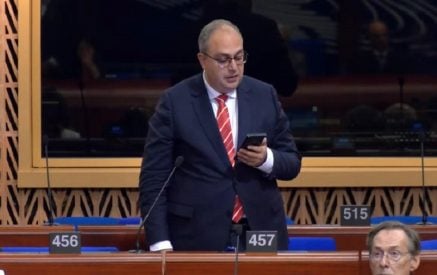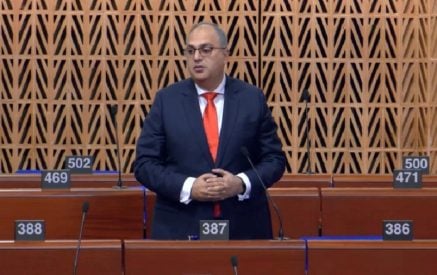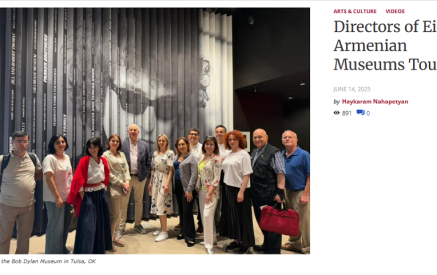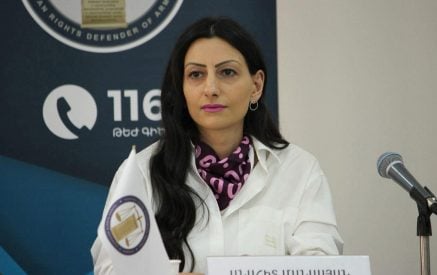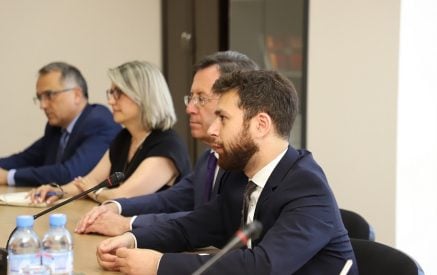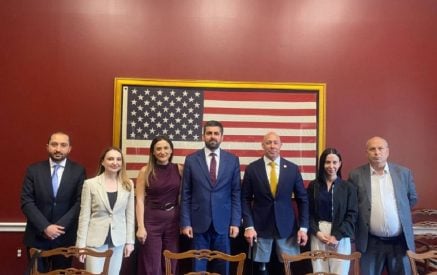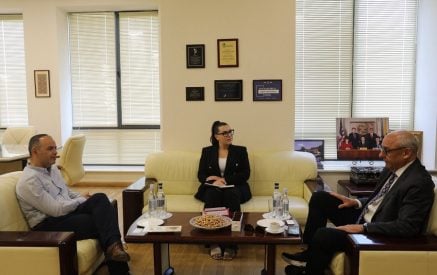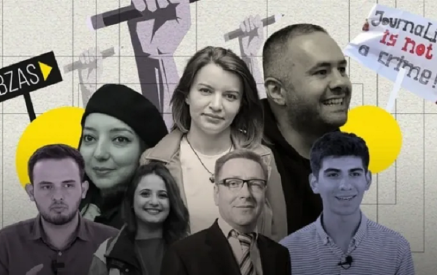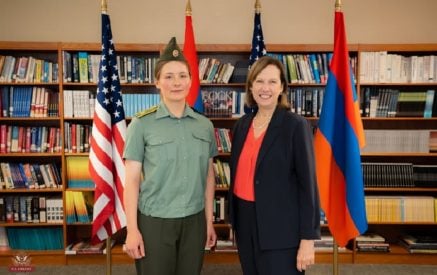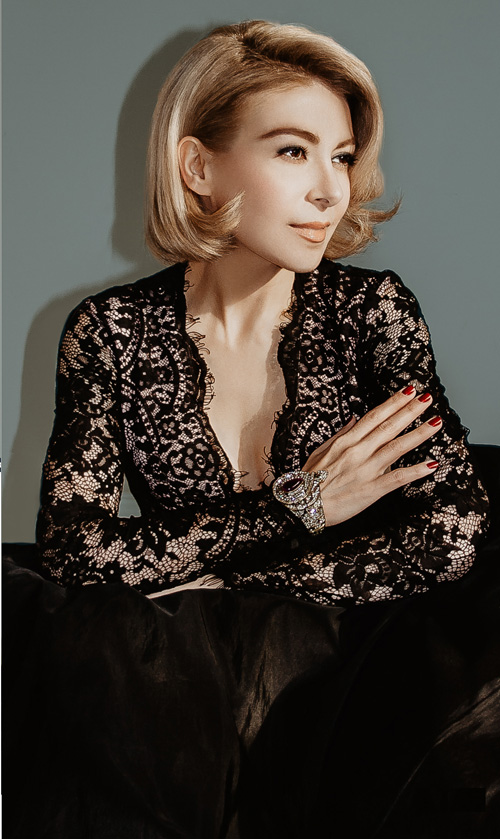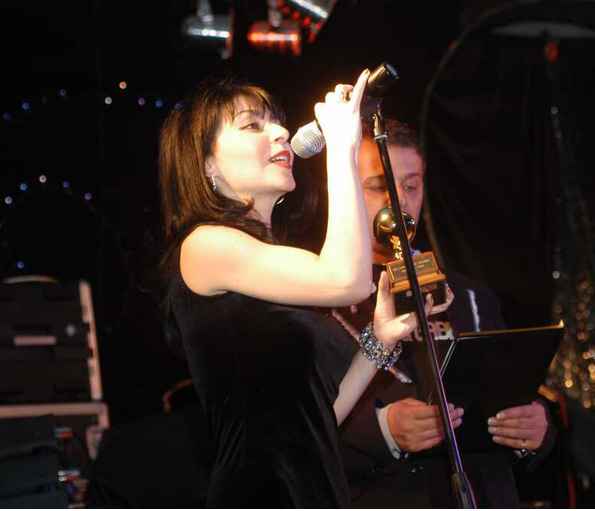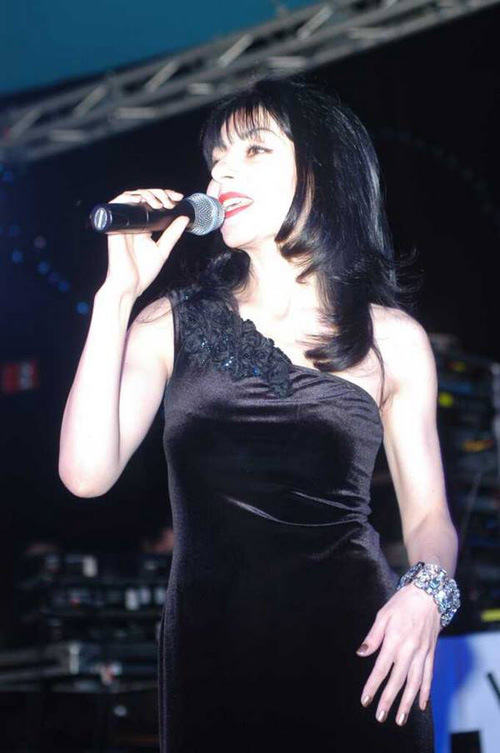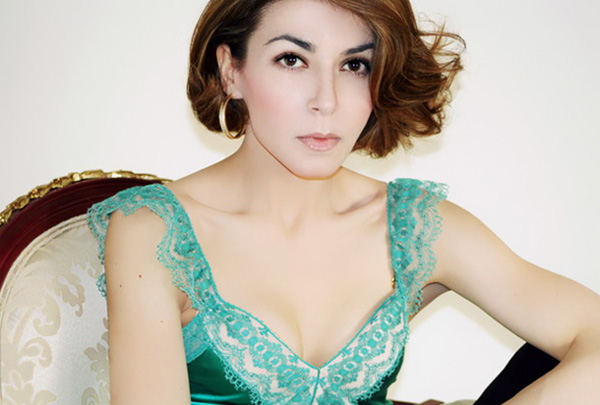We heard Sophia Gazarian’s songs simply by chance, and we were stunned not only by the exceptional beauty of her performance, but also because we knew so little about her. We learned later during our interview that Armenian singer Sophia Gazarian received standing ovations at the famous Carnegie Hall and Lincoln Center in New York. Luckily, she was willing to share her artistic background with us, as well as her plans for the future related to Armenia and Yerevan, in particular.
– Sophia, your background as an artist is largely related to Russia, where you received a profound professional education at the Gnesins Russian Academy of Music. How did it happen that you moved on to build your career in the US instead of Russia?
– I was born in the city of Baku, into a family with rich musical traditions. Back in the 19th century, my great-grandfather, Mekertich Arutyunyants (Nikita Arutyunov) was a famous musician and an educator in the city of Shoushi – the cultural center of the Caucasus. I was very young when I discovered my musical talent. It was then that I realized that performing would be a huge part of my life. My childhood was filled with music, voice, theater, and dance lessons, all leading up to my professional career that began very early.
I received my formal education at the famous Gnesins Russian Academy of Music in Moscow. My participation in the musical contest “Yalta-91” put my name on the map of the Russian music industry and kickstarted my career as a Russian artist.
I was fortunate enough to work with the biggest names in the Russian music industry (I. Krutoy, A. Morozov, A. Barykin, A. Zvezdinsky). I toured extensively, performing on the most famous stages in Russia, and participated in various TV and radio programs.
The end of the 1990’s brought about significant political and cultural changes in the nation, and at the same time, I reached a point in my career where I felt the need to explore a new world of opportunities.
It was by chance that I found myself in New York, where I fell in love with the stunning beauty of the city, its amazing rhythm, and its spirit of creativity and freedom of self-expression. Here I met the talented pianist Tigran Mkrtchian and the idea of a new project was born – a concert program featuring the most famous Armenian classics. In November of 1997, my first sold-out solo concert took place on the stage of the legendary Carnegie Hall. This was my American debut.
Our favorite pieces from the concert were included on the album “This Moonlit Night”, which was released in cooperation with BMG Records later in the same year.
To this day, my Carnegie Hall performance stands out as the most memorable event of my career. It truly is an exceptional experience, performing on such a magnificent and legendary stage.
Another unforgettable performance in New York was my concert at the famous Lincoln Center.
Today I live and work in Nashville, Tennessee, or Music City, USA. Here I have the opportunity to work closely with the best writers, producers, and musicians in the industry.
– You have a diverse repertoire, from jazz to Yerevan folk, and on top of that, you sing in three languages – Armenian, English and Russian. Nevertheless, what is closer to your heart?
– I am always very particular about the choice of my songs for my programs. Actually, the language or the style of the song doesn’t matter so much for me. The most important aspect of a song is whether it gives me the opportunity to express the emotion I feel when I sing. What it comes down to isn’t about a natural proclivity toward one language or another—perhaps toward the first language I learned, for instance—but about the way in which I choose the songs I will sing. Because I have a visceral reaction to singing songs I dislike, and an equally passionate feeling for the songs I do, when I am singing a song it is because I love it, regardless of language. There are songs in Armenian, Russian, and English that move me deeply, so it’s more about passion than language of origin for me.
– How did you manage to attract such a large audience to the outstanding Carnegie Hall or Lincoln Center in the USA – a country with such a diverse musical landscape?
– My voice is unique, as every artist’s is, but the passion and emotion that exude from me when I sing reach people on a level that resonates, and frequently very deeply. I have seen people cry when I am singing my songs, and many have told me that they cried listening to my CD, and sometimes they are listening to an Armenian folk song that they don’t even know what the lyrics mean! I am a confident performer, and I pick songs that I believe in, which makes it a lot more natural for my passion to come through the song.

– What is the most memorable incident during your performances or concerts?
– In 1995, I was invited to represent Russia at the international pop song contest in Poland. There probably isn’t a need to recall the history of Russian-Polish political relations. Of course, I didn’t expect any special warm welcome from the Polish audience. However, I could never have imagined that I’d experience the consequences of political protest arranged by the Polish musicians. During the first rehearsal, the Polish Jazz Orchestra of Television and Radio refused to accompany the participant from Russia, i.e. me. I was rather stunned. However, nothing could distract me from my goal.
I knew that I was there to sing, no matter how difficult the circumstance. And as a result, I left the stage under the thunderous applause of the audience. It was a triumphant night. I took the Grand Prix which was awarded to me by the unanimous decision of the jury. Moreover, the next day during the gala concert all the musicians of the orchestra who refused to accompany me, approached me one by one to apologize for their behavior.
This is so memorable because it not only proved the power of music, but it was a personal victory. I found a strength deep inside me to take the stage and work through the unwelcoming audience and decided to just sing. I used a gift given to me by God and I overcame what could have been a personal tragedy, and instead it was a personal victory.
– Musicians or people in art and show business often change their first names or last names or act with a stage name while working abroad, but you kept your name “Sophia Gazarian”. Does it mean that in fact the Armenian ending “-ian” did not hinder you?
– For my whole life, I’ve taken great pride in my Armenian heritage, our culture and traditions, deep musical roots, and of course my last name. Although I began my work as an artist early on in life, my family never considered changing my last name in order for me to advance in my career. When I moved to Russia, my feelings stayed the same. Of course, I was advised numerous times to change my name, but my last name is my identity. My identity is never something I would want to change. In addition, I didn’t want to conform to a society that forces individuals to compromise their identity in order to climb up the career ladder. A society based on those principles could never thrive.
– Who would you like to perform with on the same stage?
– My greatest artistic inspiration is Sergei Parajanov. Unfortunately, I didn’t get to live in the same era with this genius, act in his movies, or work on the soundtracks of his masterpieces. I couldn’t imagine any bigger happiness for me than to witness his artistic genius at work. However, I know that our people are extremely talented, and I’m sure that there will be a new Parajanov.
– Well, you’re well-known in the US, but it seems like you haven’t been much heard of in Armenia. People here haven’t heard how wonderfully you sing the songs of great Sayat-Nova or your jazz performances. Do you have any intentions to present a concert program in Armenia?
– For several years now, I’ve spent my summer vacations in Armenia. I love seeing all of the new, bright talents that are appearing on the Armenian musical scene. I definitely have some collaborations in mind with my favorite Armenian musicians. So, I think I’ll have something to share with you pretty soon.
– Which composition do you consider your signature song?
– Well, I sing in several languages and for each audience, it’s a different song. For example, if we consider my Russian listeners, I would think that my concert wouldn’t be complete without the song “Plach, skripka” (trans. from Russian “Cry, Violin”). This song has been in my repertoire since day one. There are people who may not remember my name, but can immediately recognize my voice from this song. As for Armenian compositions, my most favorite piece is “Krunk, Te Du Gnas” (trans. from Arm. “Crane, if you leave”). This is an incredibly unique, powerful, and emotional composition. It never leaves a listener untouched, and that’s something that brings me a lot of joy as an artist.
– Are there any Armenian musicians you collaborate with on your musical projects?
– It has always been exciting for me to collaborate with Armenian songwriters. My first experience was with the talented Christina Karapetyan, who is also a professor at the Department of Economics of the Russian-Armenian (Slavonic) University. Also, quite recently I released two of my singles “Heru Heru” and “Gnum Galis”. This is the result of a collaboration with the well-known songwriter Narek Stamboltsyan. I’ve really enjoyed working with him, and I hope that this is only the beginning of our work together.
– Just a few personal questions: What will you never compromise on in life?
Although life is full of choices and decisions, there are certain principles that you should never compromise. You can never be afraid to stand up for your personal morals, values, and artistic integrity, and I was fortunate enough to learn that very early in my career. If I could give one piece of advice to any aspiring artists, it would be this.
– Is there any principle in life that you will never break?
– No matter what I do in life, personally or professionally, I try to stay true to my beliefs and values, regardless of the situation and circumstances. To me, being yourself is the freedom that I value the most in life.
– In your opinion, what does it mean to be a good singer?
– I can admit this is a rather complicated question. I think the definition of a “good” singer is subjective. Everybody has their own idea of what a “good” singer is, and their own preferences and favorite artists.
Over the past decade, the music industry has changed drastically, and with it, the standards of a “good” singer have changed as well.
As for me, a good singer is an artist who is able to take a listener out of his everyday life, and invite him into a world that they created with their music.
– You have wonderful songs in Armenian in your repertoire. How does the non-Armenian audience perceive them?
– Earlier in our conversation, I mentioned my record, “This Moonlit Night”. This is a collection of classic Armenian folk songs. People from all over the world have listened to and enjoyed it, despite not being aware of Armenia and its culture. My listeners in America, Japan, China, and the Philippines particularly love the song “Ashkharoomes Akh Chim Kashi. I think the main reason is that the language of music is universal and has no boundaries. Music speaks to everybody, no matter what language they speak or where they come from. Armenian music is magical and eternal. It is truly a musical treasure. Within its timeless melodies lie so much beauty and emotional depth. My goal as an artist is to preserve the original form of these classic songs, but also deliver them in a contemporary fashion, to connect to modern listeners. And I hope to have achieved that.
Interviewed by GOHAR HAKOBYAN
“Aravot” Daily Newspaper
March 27, 2018


